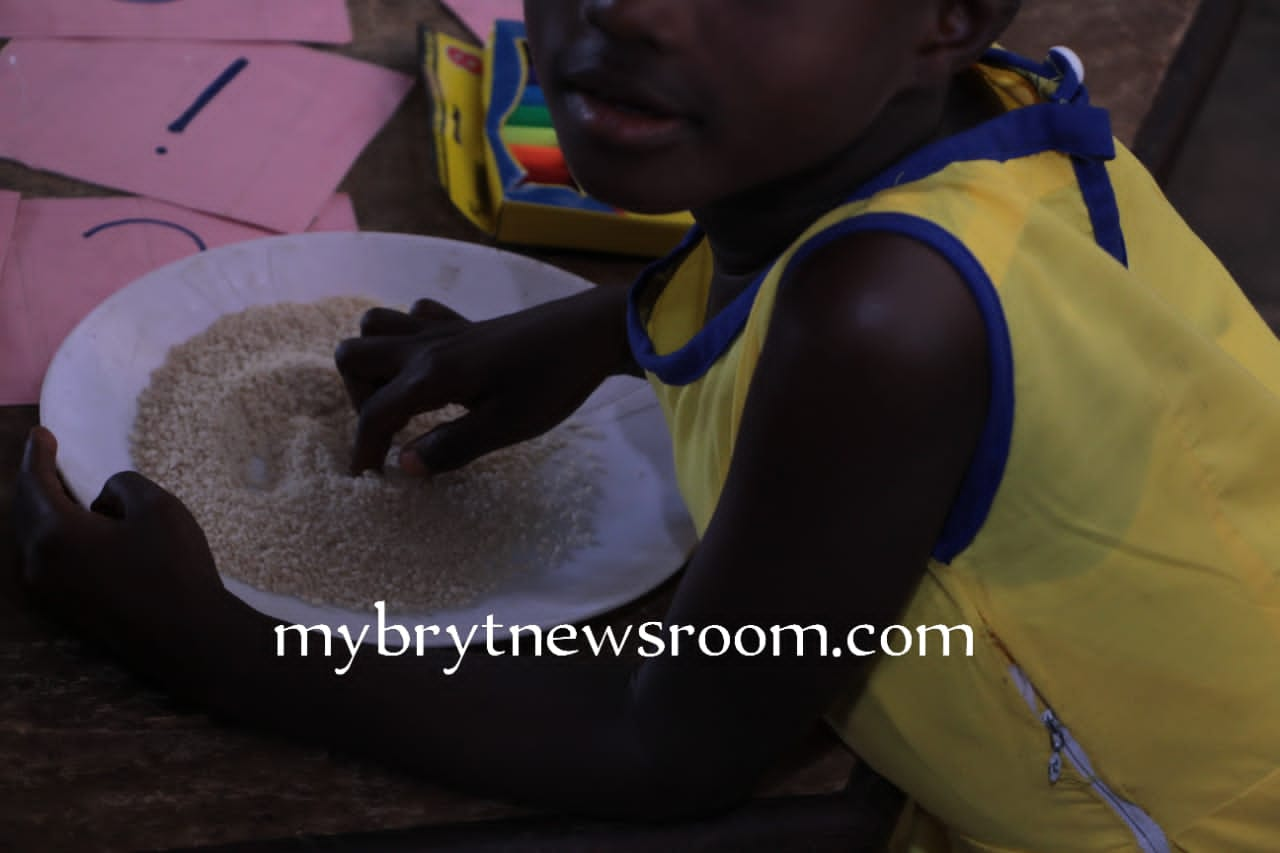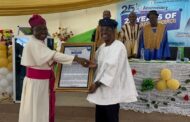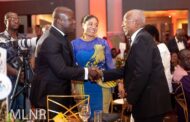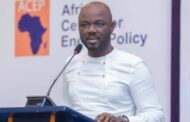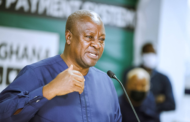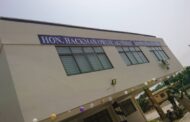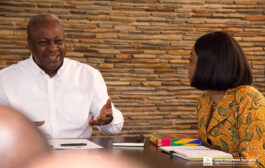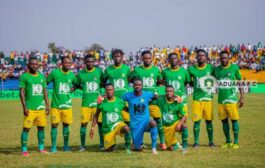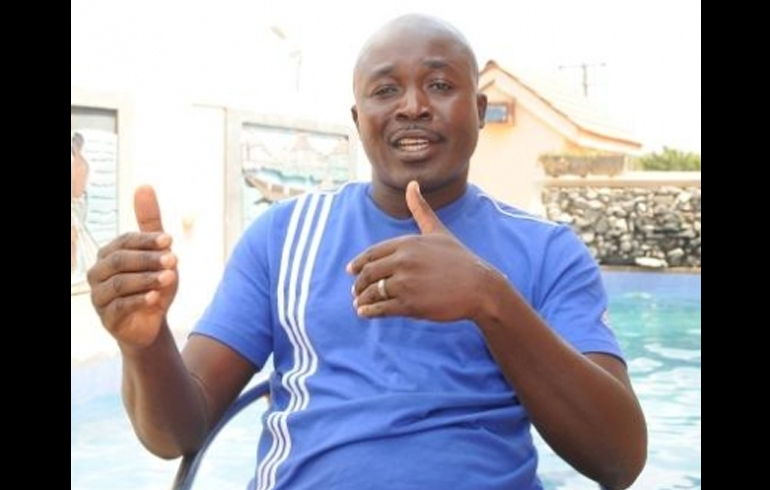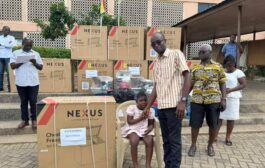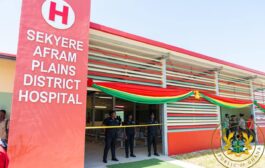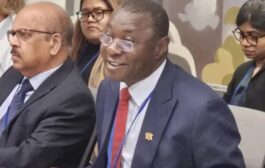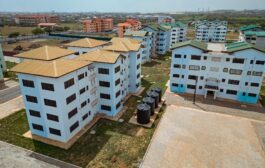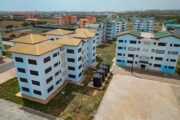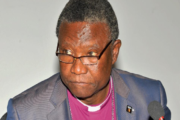Kindergarten pupils in Senchi Ferry Methodist Basic School in Asuogyaman practice writing skills in gari spread in bowls.
A visit to the school saw toddlers tracing numbers and alphabets in gari to perfect their writing skills for penmanship.
Initially, the toddlers used to practice tracing the numbers in dust but due to its health and hygiene implications management of the school decided to use gari instead.
Handwriting skills help children develop reading and spelling skills. It also helps with the ability to recall and remember information.
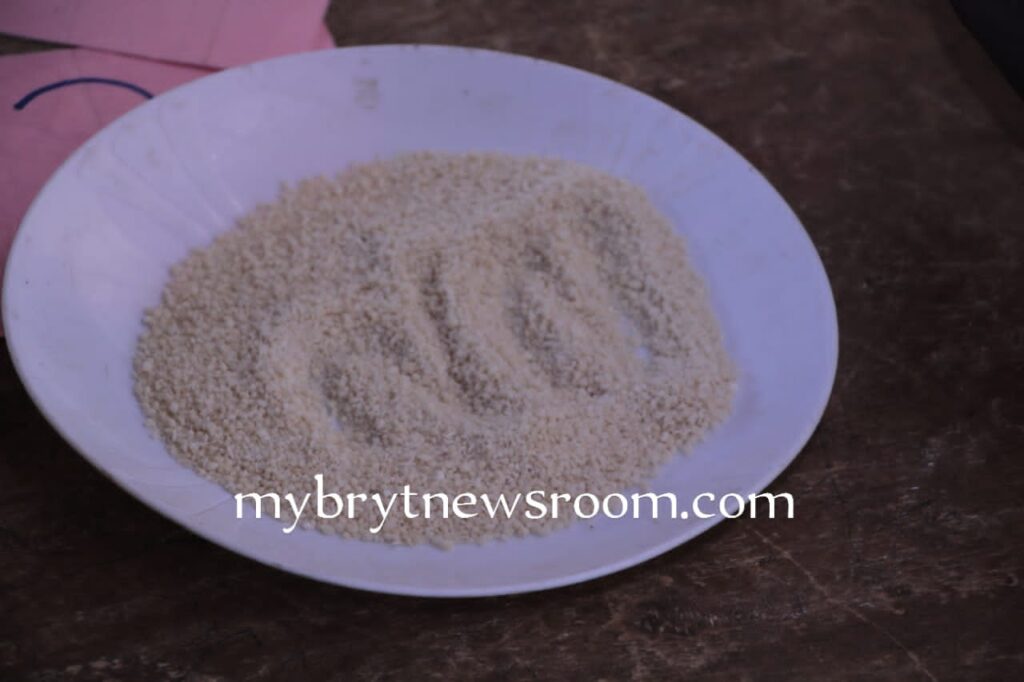
Handwriting skills and penmanship are part of KG subjects but the KGs are similarly challenged with a lack of instructional materials due to the government’s inability to supply the schools with these teaching and learning materials three years after introducing the new standard-based curriculum for basic schools.
The conference of heads of basic schools is the umbrella body for head teachers of the public Basic schools in Ghana during the first Quadrennial National Delegates Conference held from May 25 to May 27, 2022, in Kumasi stressed in a communique negative implications of the long absence of instructional materials is having in quality education delivery at the basic level.
“The benefits of the use of instructional materials in teaching and learning cannot be overemphasized. This is because, as pupils become involved in learning activities, with the materials, they understand concepts better and ultimately improve their performance. However, Basic school teachers in Ghana have for the past three years been faced with the challenge of implementing the new standard-based curriculum without the required learning materials. Since its rollout in 2019, teachers across the country are yet to access the requisite learning materials intended to aid teaching and learning in the various basic schools”.
The communique continued ” The new standard-based curriculum which was implemented in September 2019 was rolled out from Kindergarten to Class 6 in primary schools. We were made to understand that the new curriculum would focus on making children confident, innovative, creative-thinkers, digitally literate, well-rounded, and patriotic citizens “.
Source: Mybrytnewsroom.com/Obed Ansah



